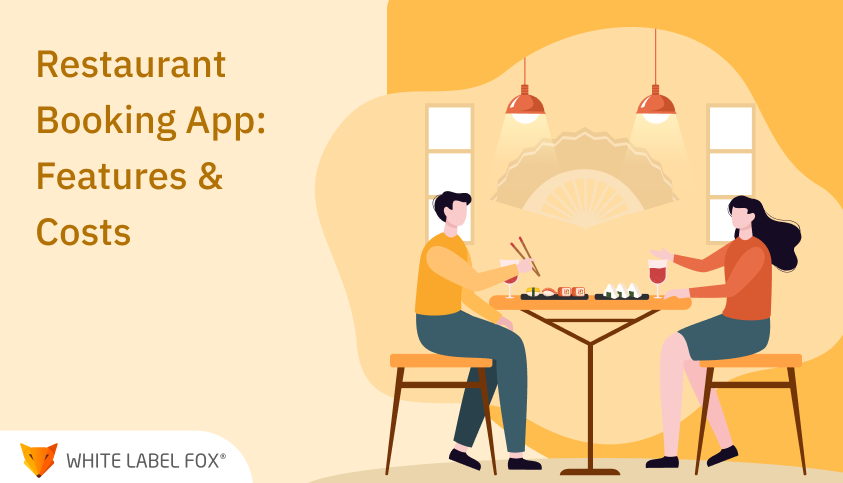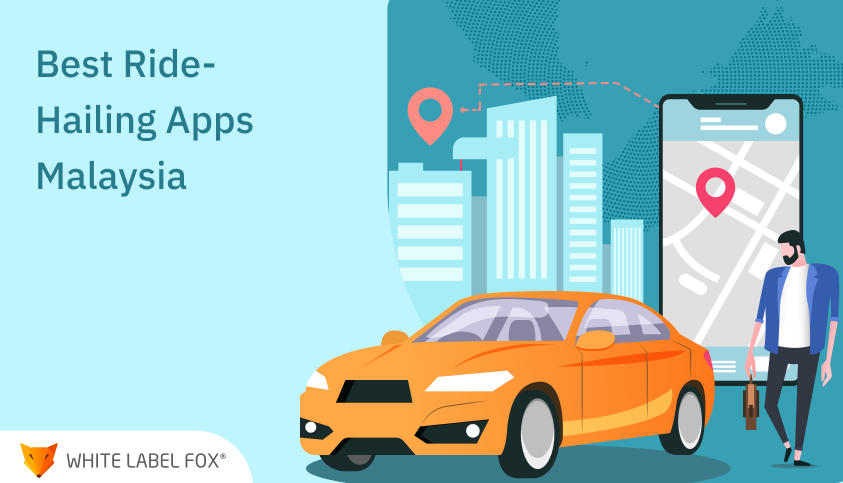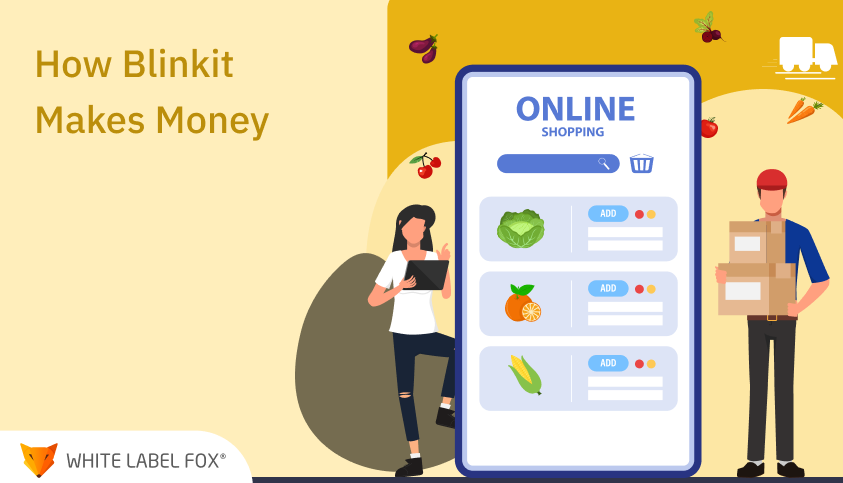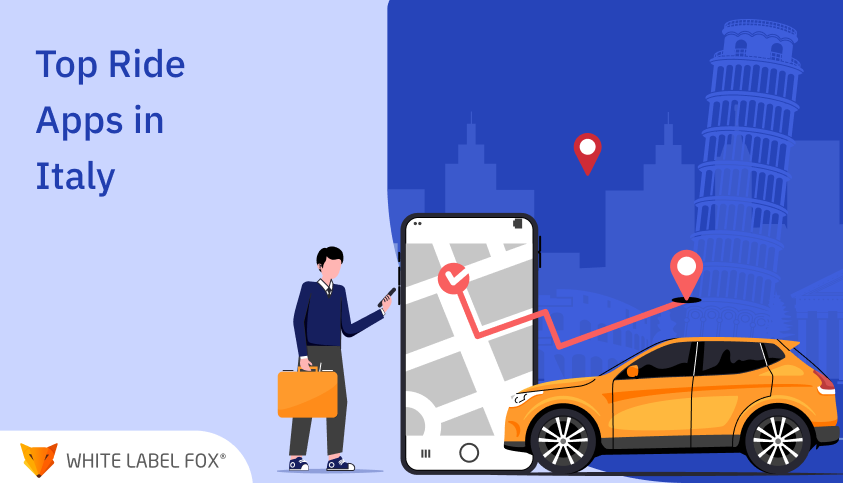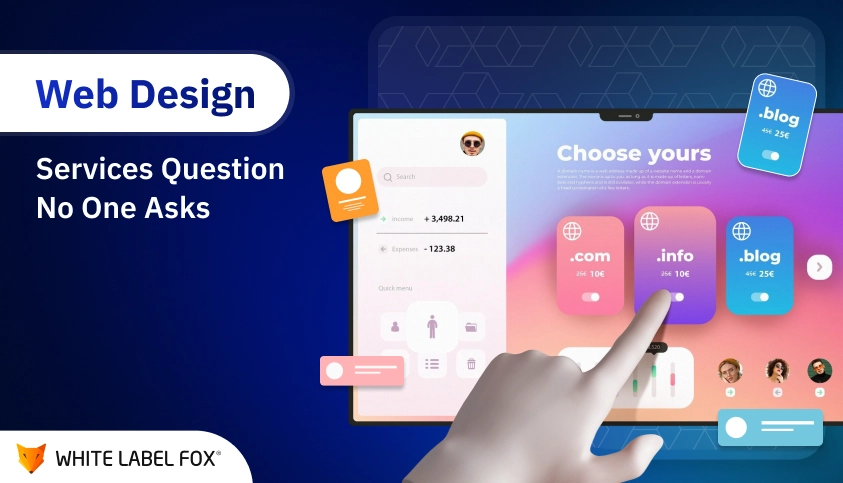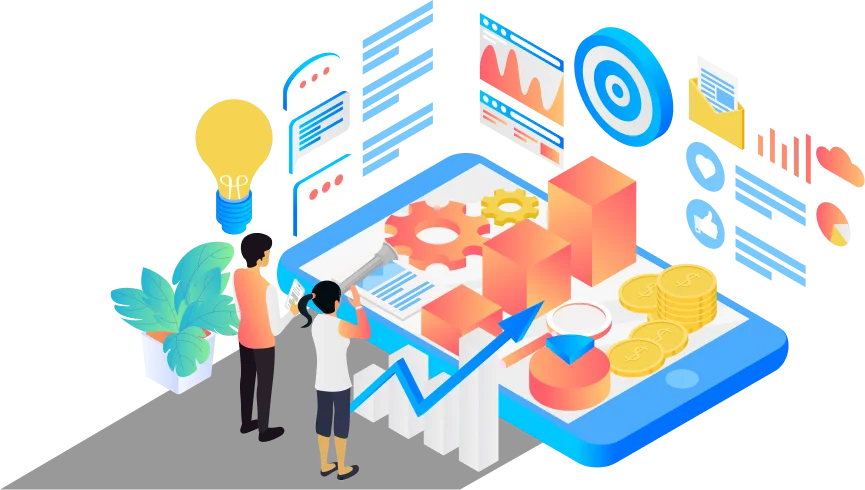As the world is steadily shifting towards digitization, changing the business landscapes and operations across industries, the restaurant sector has found another opportunity to widen its wings. The restaurant industry has always been flourishing. But with ongoing technological advancement, it has reached immeasurable heights.
Since convenience and comfort have become a priority for diners, there’s a great opportunity to start a business with a restaurant table booking app. Traditional table reservation facilities are highly error-prone since they mostly depend on humans. We all know machines are more efficient at certain tasks than humans.
The software can handle schedule requests and allocate tables more reliably than restaurant staff because there won’t be any back-and-forth communication or misunderstanding. A table booking app is a need of the hour also because diners don’t want to wait anymore.
In fact, 72% of diners admit that they can only wait up to 30 minutes for a table. If it takes more than that, they immediately start looking for another restaurant. A restaurant reservation app can help eliminate this hassle and boost revenue for businesses.
In this article, we have discussed everything about building a restaurant table booking app. But before we dive into the details, let’s quickly swim up for some important-to-know facts.
Market Statistics for the Restaurant Industry
The restaurant industry is finally back on track after a short derailment during the pandemic. Now, it’s even faster and forward. The leap it has taken post-pandemic is all thanks to the accelerated digitization we have around us. Considering this, it would be interesting to see how diners are adopting digital behaviors and what the future has for the restaurant industry.
Let’s quickly go through some stats.
- Restaurants are spending more on IT solutions than they ever used to. Reports say that restaurant owners have doubled the IT budget since the pandemic.
- People started traveling more after the pandemic. This gave a massive boost to the hospitality sector where the global market size for restaurant businesses reached US $2,989.5 billion in 2023. The forecasters suggest it will further grow by 3.3% by 2032. The market is expected to reach $4,046.1 billion in less than a decade.
- Technical advancement would be a key point for this massive surge. Right now, about 95% of restaurateurs say that technology plays a major role in improving business efficiency. (source )
- Toast report finds that 46% of restaurant owners prioritize implementing reservation technology in 2024. (source )
- About 21% of owners have already incorporated technology into their restaurants because of the higher costs. (source )
AI is the most prevalent technology currently. As per a Touch Bistro report, 89% of restaurateurs said they are already using AI in some form to improve their restaurant operations. (source )
Partner With Us to Build a Thriving Restaurant Table-booking App.

How the Dining Experience Was Revolutionized by Restaurant Booking Apps?
Smartphones have been here for quite a time. But the digital revolution they’ve brought in the last few years is massive. Smartphones empower people. They have apps that allow people to do everything, from online shopping to task scheduling and restaurant booking.
When was the last time you booked your table by calling a restaurant? I’m pretty sure it wasn’t recently. We have smartphones that have made bookings so much easier than it was before. Booking tables, checking out menus, pre-ordering food, and making online payments – everything has become a breeze with restaurant table booking apps. To users, these apps provide convenience in quick table booking. On the other hand, they make a profitable deal for restaurants in several ways.
Cutting-edge strategies like dynamic pricing offer great flexibility in deciding prices. What was earlier popular in hotels and airlines is now entering the restaurant industry. Implementing a dynamic pricing strategy allowed restaurants to adjust reservation rates based on the time, day of the week, and demand, enabling business owners to grab an opportunity to make the most.
Making the most out of the technical advancement, restaurants have found a way to utilize in-built QR scanners every smartphone comes equipped with. Now, diners are provided a QR code instead of menus. Scanning this code takes them to a portal where they can see a menu, place orders, and make payments right from their smartphones.
Besides mobile phones, advanced technologies like AI and Machine Learning have also provided their fair share in the revolutionized dining experience. These technologies, combined with the power of big data, offer useful insights that enable innovation that enhances the overall guest experience.
Benefits of Having a Restaurant Table Booking App
1. Offers Supreme Customer Service
Suppose you want to dine out this evening. Think about all the hassle you have to go through to find a good restaurant in the town. You would probably go to some online resources to look for restaurants around you and ask for space availability one by one. A restaurant table booking app eliminates this hefty task by bringing every restaurant right in front of your palm. You can effortlessly check out availability and book tables in a swift manner.
2. Maximizes the Table Turnover Time
A perfect table booking app can help you efficiently maximize the table turnover time. An app shows essential reservation information like booking time, expected duration of dining, and booked table. This information allows hotel staff to manage guests smoothly and eliminate long waiting periods and cross-bookings. Well-informed staff and better planning enable restaurant owners to accommodate more guests daily. Hence increasing profit.
3. Takes Reservations Quickly
Gone are the days when you had to manage bookings in a notebook. This inefficient way was even more infuriating when users wanted to reschedule or cancel their reservation after you denied so many customers for the same spot. The adamantness of technical advancement has changed a lot of things. Now restaurant reservation apps have eliminated direct customer contact, which reduces back-and-forth communication and delivers smooth operations.
4. Allows Pre-ordering Food
One of the best things about a restaurant reservation app is that guests can browse the menu and order food beforehand. Diners take quite a time deciding what to order. This could be a significant hurdle in increasing table turnover time. If you allow users to place their order before they arrive, they will get their food right at their arrival and free up the space as earlier. A win-win for both parties involved.
5. Promotes Customer Loyalty
Retaining customers in a highly competitive food industry is harder than ever before. However, an app can help you. A restaurant table booking app allows you to launch promotional activities to attract and retain customers. You can offer discounts for first-timers and provide additional offers to regular visitors. Such customer loyalty programs keep guests engaged and coming to you.
Key Features of a Hotel Table Booking App
Features in the Customer Module
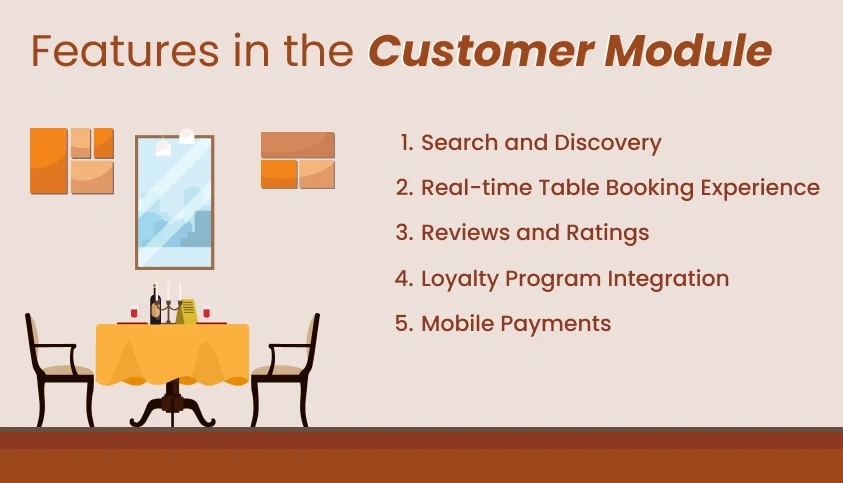
1. Search and Discovery
One of the significant hassles a restaurant table booking app takes off of a diner’s head is finding their favorite restaurants for reservation. Most on-demand restaurant reservation apps offer a strong search and discovery experience to their users through a search feature, allowing them to find dining outlets and book effortlessly.
2. Real-time Table Booking Experience
The restaurant app should offer the latest and most accurate details of the available tables. Any changes made in the database should instantly reflect in the app so that users can check out the available and reserved spots in real-time. Moreover, it should also indicate the seating capacity of a table.
3. Reviews and Ratings
Customer reviews are crucial as around 46% of diners have admitted that they consider checking out reviews and ratings before booking a table. Having a dedicated feedback section can give your users a reliable experience as they can determine the service and food quality from the feedback of past diners.
4. Loyalty Program Integration
Needless to say, loyalty programs are the best customer retention strategy. As per a report, over 80% of consumers say they would participate in a loyalty program if a restaurant they visit offers it regularly. Special discounts to frequent diners make them feel valued, hence building loyal customers over time.
5. Mobile Payments
It’s 2024, and if you’re not thinking about implementing a mobile payment feature into your restaurant table booking application, you’re leaving a large amount of cash on the table. As the world paces towards digital transactions, 76% of restaurants already offer contactless payment solutions to their diners. Online payment options offer convenience and streamline the process of table booking, hence providing an effortless customer experience.
Features in the Restaurant Management Module
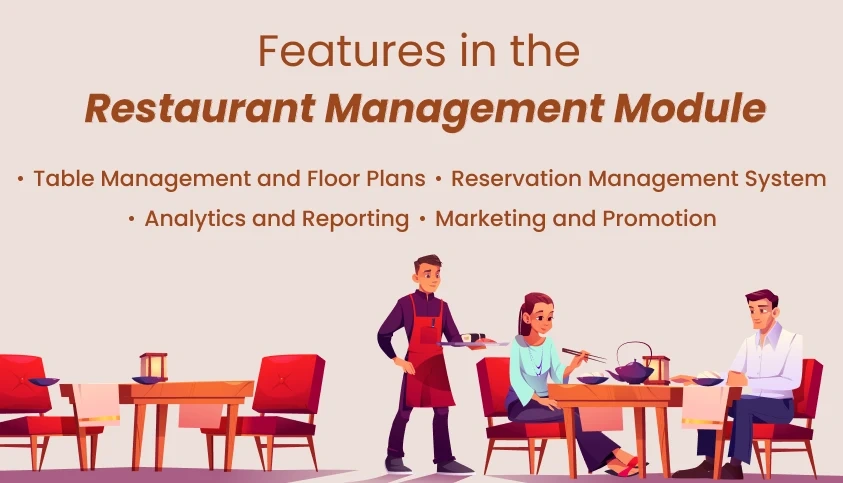
1. Table Management and Floor Plans
An on-demand restaurant table-booking app should allow administrators to build customized and digital floor plans according to their dining area’s layouts. It enables them to offer a good user experience since diners get a clearer idea of the seating arrangement. Whether customers want to conduct an important business meeting or have a lively chat over dinner with their friends, they can choose the spot they think would be convenient.
2. Reservation Management System
A reservation management system is a key facet for handling reservation-related tasks. Hence, your restaurant app should feature a comprehensive dashboard that allows administrators to seamlessly manage reservations. The dashboard should include functionalities like automated reminders and confirmations to reduce human intervention so that staff can focus on the more important aspects of the business.
3. Analytics and Reporting
We generate massive amounts of data every day. Scrutinizing this data through various analytical means can help us derive useful insights. The restaurant reservation app should have analytics and reporting features that display these insights into easy-to-digest visual charts, leading to seamless data-driven decision-making.
4. Marketing and Promotion
Marketing and promotional features involve a suite of tools that help you manage promotions, and integrate email marketing and social media platforms to increase visibility. These additional tools ensure all your marketing operations are carried out in a much more efficient and effortless manner.
Cost Estimation of Developing Restaurant Reservation App
Cost is a prominent concern for entrepreneurs building an on-demand app. However, determining the exact cost of building a table booking app is not a straightforward task. The application development process involves many complexities. Therefore, we can’t provide the exact cost, but we can estimate it based on some essential steps.
Below, we have created a table where we’ve split an entire restaurant table booking app development process and provided cost estimation for each phase. Let’s take a look to get a better idea.
| App Development Phase | Hours | Cost |
|---|---|---|
| Technical Documentation | 40 Hours | $1000-$2000 |
| UI/UX Design | 60 Hours | $1000-$2000 |
| Front-End & Back-End Development | 80-150 Hours | $10,000-$20,000 |
| Testing & QA | 80 Hours | $2000-$4000 |
| Total Cost of Building a Restaurant Reservation App | $14,500-$29,000 |
The cost estimation given here has a wide range due to multiple factors affecting it. Below, we have discussed those factors to give you a better idea.
Get a Customized App Cost Estimation Tailored to Your Project.

Factors That Affect the Cost of Restaurant Table Booking App Development
The restaurant table booking app development cost mainly depends on the platform you are building the app for. However, several other factors could also affect the price you would pay for your app. Here they are:
Features:
Features are one of the highly affecting cost factors. Apparently, basic features like search, booking, ratings, and reviews take less time and effort to build compared to advanced features like recommendation systems, dynamic pricing, and more. Hence the former costs more than the latter.
Development Team Location:
The country you outsource your development services also plays a crucial role in deciding your app development cost. Developers from the United States charge more than developers from Europe and Asia. However, higher charges don’t necessarily mean higher quality. You can find similar services from some Asian countries like Asia at lower cost compared to the US.
App Integrations:
Third-party integration can further increase the cost. If you want to integrate payment gateways, social media, or location-based services, your app development budget would exceed a little more than expected.
App Maintenance:
Building an app isn’t enough. You also need to maintain it regularly. This maintenance also increases the cost. However, see maintenance as an investment that will give you great returns in the future.
Build Your Restaurant Table Booking App Today!
Being one of the leading on-demand app development companies, we’ve been helping entrepreneurs establish their businesses with superior applications. Our development fleet has the skills and knowledge to create cutting-edge restaurant table-booking apps with advanced features.
Excited to venture into the journey of building a successful restaurant reservation app? We are here for you. Pitch your requirements and our experts will quickly get back with customized app cost estimation and a complete roadmap to build a thriving app for your start-up.
Frequently Ask Questions
A restaurant table booking app is a mobile or web-based application
that
allows customers to make reservations for a table at a restaurant.
Users
can choose the date, time, and number of people, as well as browse
available tables and receive confirmation instantly. These apps
offer
convenience, reduce wait times, and help restaurants manage their
bookings more efficiently.
Essential features for a restaurant table booking app include:
- User registration and profile management
- Restaurant search and filter options (location, cuisine,
ratings)
- Real-time table availability
- Table selection (indoor, outdoor, specific location in the
restaurant)
- Booking confirmation and notifications
- Integrated payment system for deposits or advanced payments
- Cancellation and modification options
- Push notifications and reminders
- Customer reviews and ratings
- Admin panel for managing reservations, tables, and
restaurant
details
- User registration and profile management
- Restaurant search and filter options (location, cuisine, ratings)
- Real-time table availability
- Table selection (indoor, outdoor, specific location in the restaurant)
- Booking confirmation and notifications
- Integrated payment system for deposits or advanced payments
- Cancellation and modification options
- Push notifications and reminders
- Customer reviews and ratings
- Admin panel for managing reservations, tables, and restaurant details
The cost of developing a restaurant table booking app depends on
various
factors, such as:
- App platform (iOS, Android, or both)
- Design and UI/UX complexity
- Required features (real-time booking, payment integration,
etc.)
- Backend infrastructure (database, server management)
- Third-party integrations (payment gateways, map APIs)
- App testing and maintenance
On average, the development cost can range from $15,000 to $60,000
or
more, depending on the complexity and customization.
- App platform (iOS, Android, or both)
- Design and UI/UX complexity
- Required features (real-time booking, payment integration, etc.)
- Backend infrastructure (database, server management)
- Third-party integrations (payment gateways, map APIs)
- App testing and maintenance
To create a user-friendly app:
- Easy navigation: Ensure users can easily browse
restaurants, view available tables, and complete bookings.
- Intuitive interface: A simple, clear design that
allows
users to make reservations in just a few clicks.
- Real-time updates: Display accurate and up-to-date
availability to avoid overbooking or confusion.
- Push notifications: Remind users of their booking and
send alerts for confirmations or changes.
- Multiple payment options: Provide various payment
methods
like credit cards, e-wallets, or online banking for
flexibility.
- Easy navigation: Ensure users can easily browse restaurants, view available tables, and complete bookings.
- Intuitive interface: A simple, clear design that allows users to make reservations in just a few clicks.
- Real-time updates: Display accurate and up-to-date availability to avoid overbooking or confusion.
- Push notifications: Remind users of their booking and send alerts for confirmations or changes.
- Multiple payment options: Provide various payment methods like credit cards, e-wallets, or online banking for flexibility.
To develop a restaurant table booking app, you’ll need:
- Mobile development frameworks: React Native, Flutter,
Swift (iOS), Kotlin (Android)
- Backend technologies: Node.js, Python, Ruby on Rails,
or
PHP
- Database management: MySQL, MongoDB
- Payment gateways: Stripe, PayPal, Razorpay, or other
region-specific services
- Geolocation services: Google Maps or Mapbox for
location-based searches
- Push notification services: Firebase Cloud Messaging,
OneSignal
- Mobile development frameworks: React Native, Flutter, Swift (iOS), Kotlin (Android)
- Backend technologies: Node.js, Python, Ruby on Rails, or PHP
- Database management: MySQL, MongoDB
- Payment gateways: Stripe, PayPal, Razorpay, or other region-specific services
- Geolocation services: Google Maps or Mapbox for location-based searches
- Push notification services: Firebase Cloud Messaging, OneSignal
Revenue models for a restaurant table booking app include:
- Commission-based model: Charging restaurants a
commission
for every reservation made through the app.
- Subscription model: Charging restaurants a fixed
monthly
or yearly subscription fee to list their services on the
platform.
- Freemium model: Offering basic booking services for
free,
with premium features (like featured listings or analytics)
available for a fee.
- Advertisement model: Displaying targeted ads within
the
app and earning revenue from advertisers.
- Commission-based model: Charging restaurants a commission for every reservation made through the app.
- Subscription model: Charging restaurants a fixed monthly or yearly subscription fee to list their services on the platform.
- Freemium model: Offering basic booking services for free, with premium features (like featured listings or analytics) available for a fee.
- Advertisement model: Displaying targeted ads within the app and earning revenue from advertisers.
To ensure customer data security:
Use SSL encryption for data transmission to protect user
information.
Adopt secure payment systems with PCI DSS compliance for
processing financial transactions.
Implement strong authentication methods (such as
two-factor
authentication) for user accounts.
Regularly update the app to fix any security
vulnerabilities
and prevent data breaches.
Use SSL encryption for data transmission to protect user information.
Adopt secure payment systems with PCI DSS compliance for processing financial transactions.
Implement strong authentication methods (such as two-factor authentication) for user accounts.
Regularly update the app to fix any security vulnerabilities and prevent data breaches.
Challenges can include:
- Real-time availability: Ensuring that the app
provides
accurate, up-to-date information regarding table
availability to
prevent overbooking.
- Integration with restaurant systems: Integrating the
app
with existing restaurant management systems to sync
reservations
and customer preferences seamlessly.
- Handling large user volumes: Scaling the app to
manage
high traffic, especially during peak hours, without crashes
or
slowdowns.
- User retention: Encouraging users to continue using
the
app for repeat bookings with personalized offers or loyalty
programs.
- Real-time availability: Ensuring that the app provides accurate, up-to-date information regarding table availability to prevent overbooking.
- Integration with restaurant systems: Integrating the app with existing restaurant management systems to sync reservations and customer preferences seamlessly.
- Handling large user volumes: Scaling the app to manage high traffic, especially during peak hours, without crashes or slowdowns.
- User retention: Encouraging users to continue using the app for repeat bookings with personalized offers or loyalty programs.
Promote your app with strategies like:
- Social media marketing: Create engaging content and
ads
to promote the app on platforms like Facebook, Instagram,
and
Twitter.
- Partnerships with restaurants: Collaborate with
popular
restaurants to attract more users to your app.
- SEO and content marketing: Optimize your app’s
website
for relevant search terms like "restaurant table booking" or
"best reservation apps."
- Referral programs: Offer users discounts or rewards
for
referring others to the app.
- Incentives for first-time users: Offer a discount or
special offer to users making their first reservation.
- Social media marketing: Create engaging content and ads to promote the app on platforms like Facebook, Instagram, and Twitter.
- Partnerships with restaurants: Collaborate with popular restaurants to attract more users to your app.
- SEO and content marketing: Optimize your app’s website for relevant search terms like "restaurant table booking" or "best reservation apps."
- Referral programs: Offer users discounts or rewards for referring others to the app.
- Incentives for first-time users: Offer a discount or special offer to users making their first reservation.

